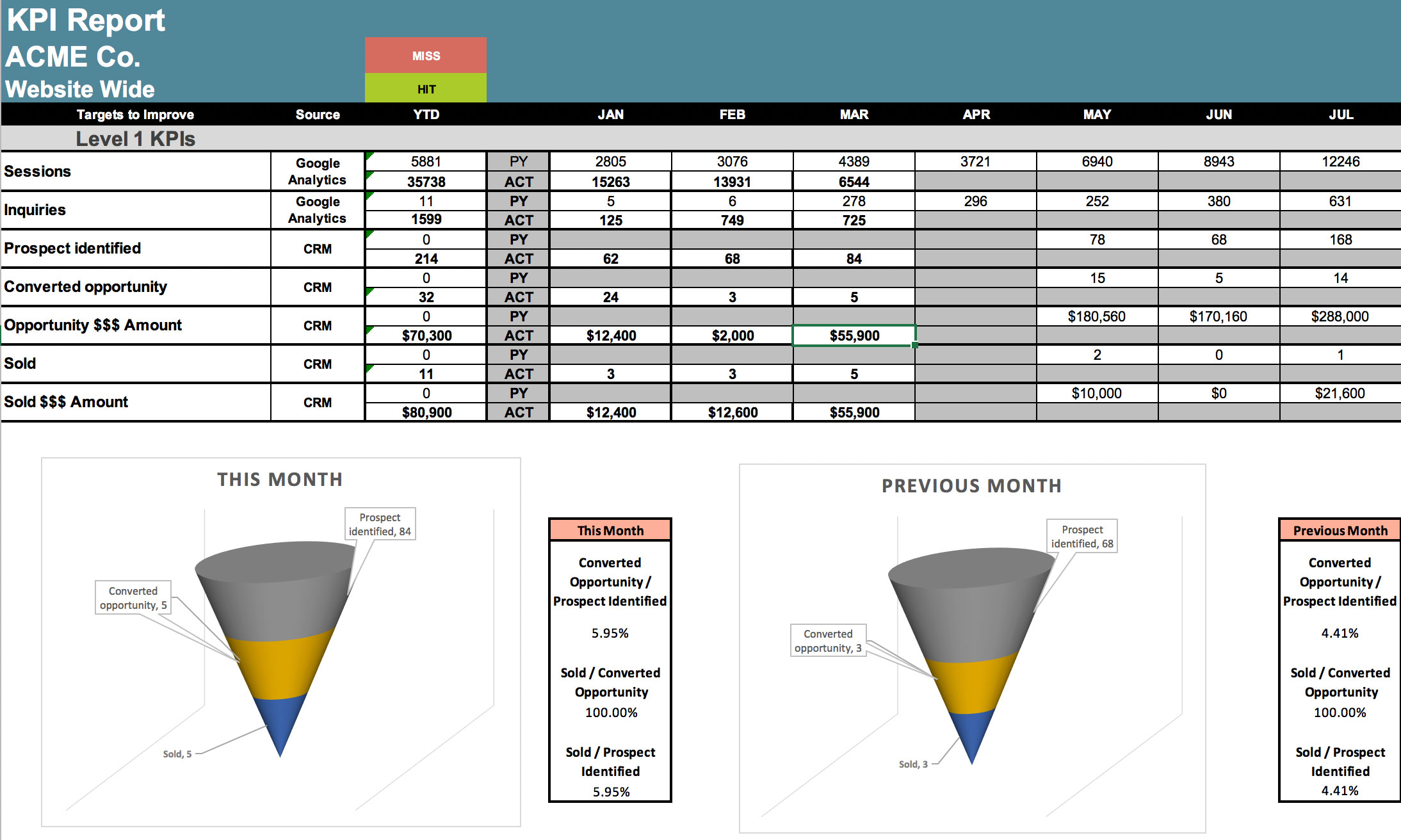CRM software has revolutionized B2B sales over the past 20 years. Each sales rep used to have an enormous Rolodex on their desk which had to be manually updated. Now, cloud-based CRM systems enable reps to log in from anywhere and get the contact information for their SQLs and customers, see the stages of their pending deals, and review contact logs to find out which accounts need to be reached out to.
CRMs are a must for B2B sales teams, but they are also valuable for B2B marketers. Marketers use CRMs to keep track of contacts, campaigns, and conversion data. CRMs can provide the most benefit by serving as a common hub for the Marketing department, Sales teams, and Customer Service teams to work together harmoniously throughout all phases of the Buyer’s Journey. Not all CRMs offer this level of integration as a built-in feature, but most can be adapted to this higher level of functionality with custom scripts. Today, let’s cover some of the key uses of CRMs for B2B marketing and why B2B marketers should consider investing in attribution and other scripting to improve their CRM’s value.
1. Contact data logging
The CR in CRM stands for Customer Relationship, so how can CRMs help before there is a customer or a relationship? Many B2B marketing departments use lists and account-based targeting for campaigns. The CRM system is a logical place to store contact information for these unqualified leads.
A variety of solutions (e.g. Marketing Automation) can monitor organic and paid traffic to your company website and, via cookies, track a repeat visitor until they make themselves known. At that point, all the accumulated data can be synced with the CRM. In addition to basic information like name, company, job title, and industry, previous site visits can be logged, including specific search terms or ads which brought them to the site, solution pages visited, and more.
2. Segmentation
Research shows that the more personalized and targeted a campaign, the more effective it will be. Using data from the CRM, B2B marketers can design campaigns for particular industries, company size, job titles, geographies, and other characteristics. By syncing the CRM with engagement data from the company website, marketers can create campaigns which are highly tailored to the prospect’s phase of the buyer’s journey. For example, prospects who visited the website several times and downloaded an ebook about a solution might be targeted with an email nurture sequence directing them to case studies, and sent a lumpy mailer invitation to accept a meeting with an account rep.
3. Automation
B2B marketers are more efficient when routine marketing tasks are automated. Losses due to human error are reduced. Most CRM systems are designed to track prospects through the sales cycle. The transition of an MQL to an SQL can be problematic, with potential for a lead to be lost due to inattention. Marketers can use the CRM system to automate the hand-off sequence, automatically assigning the lead to a sales manager or an account rep based on specific criteria and notifying all concerned via email.
The ROI for email marketing campaigns has consistently outperformed other digital marketing activities in recent years, increasing to 32x in 2018, according to Data Marketing Association’s Marketer email tracker 2018 report, Automation increases the efficiency of email campaigns, enabling B2B marketers to send very targeted emails in response to recipient activities and engagement.
Many B2B marketers use an email automation provider which is separate from their CRM system. Typically these services enable contact tagging based on events like opening an email or clicking a link within it. These automated campaign funnels are quite sophisticated in their segmentation, but can be taken to a more advanced level by syncing with data from the CRM. With the CRM as a hub, response to ad campaigns and retargeting, event attendance, and other marketing data can be used to inform and further personalize email automation on a separate platform.
4. Attribution
The CRM can serve as a hub for maintaining attribution data. When attribution systems are implemented, then as a prospect moves through the Buyer’s Journey, information about their experience (such as which marketing touch he or she first responded to) are logged to track ROI. Through this detailed data marketing can become much more efficient. Marketers don’t have to guess which campaigns were the most effective not only at generating leads, but in progressing those leads to a closed sale. By increasing spending on traffic sources and ads which deliver a positive ROI and eliminating those which fail to deliver results, marketing becomes more cost-effective.
5. Reporting and Alerts
Most CRM systems make it easy to set up the generation and distribution of marketing and sales KPI reports on a recurring basis. B2B Marketers can use attribution reports to adjust campaign allocations. Marketers can use regularly-reported sales data in campaign planning, devoting more resources to demand generation for solutions which are trending.

An example of what a KPI report may look like
Increasing the CRM’s value
The company CRM system is the logical hub for tracking marketing and sales activities throughout the Buyer’s Journey, from initial awareness to buying phases. The CRM is only as good a resource as the quantity and quality of the data it contains and the ease with which the data are turned into actionable insights via reporting.
Ideally, the CRM is a hub for Sales and Marketing to track a prospect from initial touch to a closed sale, including data on all the marketing and sales activities which contributed along the way. When this level of attribution data is available and reported out, B2B marketers can track the ROI for their efforts and adjust campaign planning and budgets accordingly. If your CRM falls short of this ideal, it can be improved with the addition of tracking pixels, scripting, and regular syncing between the CRM and other marketing platforms (like Marketing Automation). Digital Reach offers services to make your CRM work harder for you. If you are interested in learning more, contact Digital Reach today!





